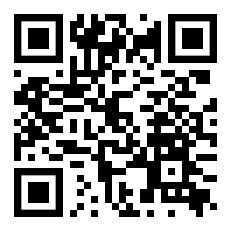Gold returned to growth amid rising recession fears. Tech companies reports beat forecasts
Shares of Activision Blizzard (ATVI), the largest video game maker, plummeted more than 10% after the UK Competition and Markets Authority (CMA) blocked the acquisition of Activision Blizzard by Microsoft Corporation (MSFT). The regulator fears that the deal could lead to a significant decrease in competition in the markets for game consoles, subscriptions, and cloud computing.
Alphabet (GOOGL) Inc. reported better-than-expected first-quarter results and a $70 billion stock buyback plan. Microsoft Corporation (MSFT) gained 7% after posting quarterly results that beat Wall Street estimates as its Azure cloud business performed better than expected. According to Refinitiv IBES, of 163 S&P 500 companies that reported first-quarter earnings, 79.8% beat analysts’ expectations.
The German government raised this year’s economic growth forecast to 0.4% from the previous forecast of 0.2%. Current economic indicators like industrial production, new orders, and business climate point to an economic recovery. Economists expect stagnation in the first quarter, followed by an acceleration in growth. For 2024, the government slightly lowered its growth forecast to plus 1.6% from plus 1.8%. Inflation forecasts have also been adjusted downward to 5.9% for 2023 and 2.7% for 2024. The government expects the unemployment rate to be 5.4% in 2023 and 5.2% in 2024, after 5.3% in 2022.
The US crude oil inventories fell last week by 5.1 million barrels to 460.9 million barrels. But oil continued its downward movement yesterday as recession fears outweighed the US inventory decline. Investors also expressed concern that potential interest rate hikes by central banks may slow economic growth and reduce energy demand in the United States, United Kingdom and the European Union.
Gold and silver prices are rising as US recession fears continue to rise. The US 2-10-year bond yield spreads remain heavily inverted, while US Treasury yields fell sharply yesterday as traders continue to count on a US rate cut later this year.
Asian markets traded flat yesterday. Japan’s Nikkei 225 (JP225) decreased by 0.71%, China’s FTSE China A50 (CHA50) was down by 0.03% for the day, Hong Kong’s Hang Seng (HK50) ended the day up 0.71%, India’s NIFTY 50 (IND50) added 0.25%, and Australia’s S&P/ASX 200 (AU200) closed negative by 0.08% for the day.
Last month the yuan became the most widely used currency for cross-border transactions in China, overtaking the dollar for the first time. Cross-border payments and receipts in yuan rose to a record $549.9 billion in March from $434.5 billion a month earlier. China has long promoted the use of the yuan to settle cross-border transactions as part of efforts to internationalize the use of its currency. The use of the yuan in global trade finance remains low, although it is showing strong growth. SWIFT data showed that the share of the yuan in global foreign exchange trade finance transactions rose to 4.5% in March, while the dollar accounted for 83.71%.
S&P 500 (F) (US500) 4,055.96 −15.67 (−0.38%)
Dow Jones (US30) 33,301.87 −228.96 (−0.68%)
DAX (DE40) 15,795.73 −76.40 (−0.48%)
FTSE 100 (UK100) 7,852.64 −38.49 (−0.49%)
USD Index 101.86 +0.51 +0.50%
News feed for: 2023.07.04
- US GDP (q/q) at 15:30 (GMT+3);
- US Initial Jobless Claims (w/w) at 15:30 (GMT+3);
- US Pending Home Sales (m/m) at 17:00 (GMT+3);
- Natural Gas Storage (w/w) at 17:30 (GMT+3).
This article reflects a personal opinion and should not be interpreted as an investment advice, and/or offer, and/or a persistent request for carrying out financial transactions, and/or a guarantee, and/or a forecast of future events.
